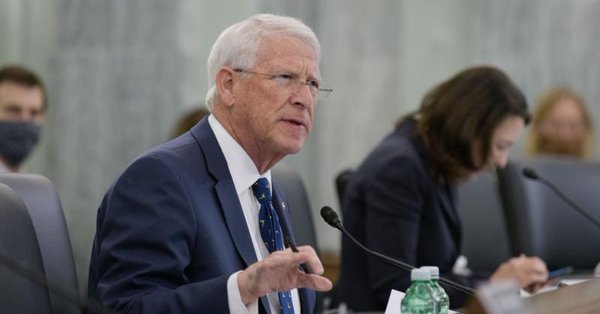Wicker: Biden Policies Are Discouraging Work, Delaying Recovery
Note: The following is an article provided by Sen. Roger Wicker (R-Mississippi)
With COVID-19 in full retreat, it ought to feel like morning again in America. The vaccines have been a huge success thanks to Operation Warp Speed, with more than 125 million Americans now fully immunized. Mask mandates across the country are disappearing. Demand for consumer goods is on the rise. By all measures, our economy should be booming, yet millions of Americans remain on the sidelines and are not returning to work.
In April our economy added 266,000 jobs, far fewer than the one million jobs experts had predicted. This slow rate of hiring is not for lack of opportunity – there are now eight million jobs across the country waiting to be filled. Employers simply cannot find workers. According to the National Federation of Independent Business, last month 44 percent of small businesses had openings that they could not fill.
The reason for the labor shortage is simple: government is paying Americans to stay home from work. President Biden’s expanded unemployment benefits of $300 extra per week, which Democrats passed in March, have discouraged millions of able-bodied Americans from rejoining the workforce.
Job Creators Unable to Compete with Government Benefits
March 2020 was a unique moment of crisis that called for urgent financial relief for the American people. Congress acted swiftly to provide that relief on a sweeping bipartisan basis. This year, when Democrats took over the majority in the Senate, our country was already on the mend. The nonpartisan Congressional Budget Office had predicted a full economic recovery by the middle of this year without any additional stimulus needed from Congress. But Washington Democrats brushed aside this optimism and decided to pass more stimulus to the tune of $1.9 trillion. This time, the money was excessive, poorly targeted, and extended beyond the time of the pandemic.
These policies are now holding back our economic recovery. Job creators cannot compete with government benefits, which are keeping millions of Americans out of the workforce. A casino manager in Biloxi recently said staff shortages have gotten worse even as business has improved. Restaurants are in a similar bind. Fifty-seven percent of restaurant operators now say finding and keeping employees is their biggest problem. This same dilemma is facing multiple other industries such as hospitality, manufacturing, and construction.
Fortunately, governors across America are standing up to these “pay to stay at home” policies. I commend Gov. Tate Reeves for opting out of expanded federal unemployment funds in order to help Mississippi embark on a full recovery. Nearly half of all governors share the same mindset and are saying “no” to those unnecessary federal funds. These decisions are paving the way for our labor force to make a full recovery.
Recovery Should Benefit Rural Communities
As more Americans return to work, I am leading several initiatives to help boost hiring in Mississippi communities. This past week I reintroduced the Rural Jobs Act, which would attract billions in private investment to rural communities through expanded tax credits. I also reintroduced the Reaching America’s Rural Minority Businesses Act. This legislation would authorize up to 10 business centers at Historically Black Colleges and Universities, providing a base of support for entrepreneurs in rural minority communities. Both bills have received bipartisan backing and would move us closer to our goal that the recovery should include all communities. As our state economy improves, I am committed to finding targeted ways to spur job creation rather than offering misguided incentives that would undermine our recovery.
The preceding article was provided by Sen. Roger Wicker’s office.




